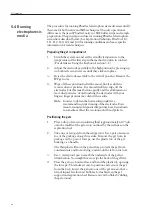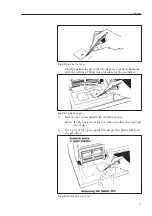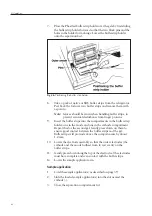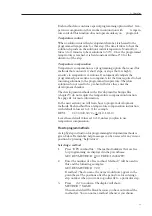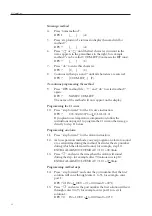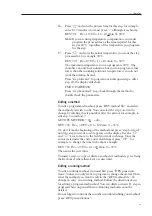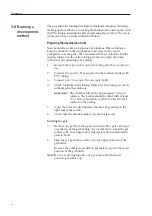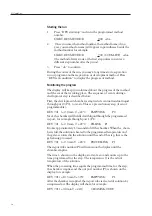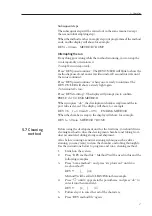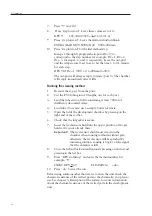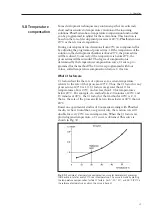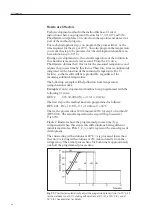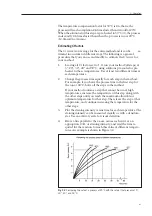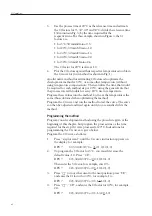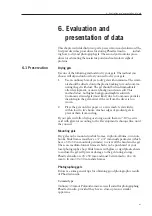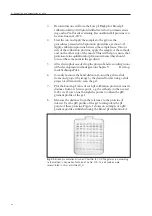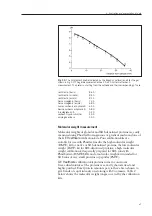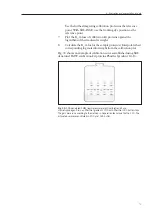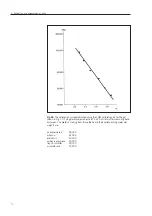
60
How to use Ct factors
Each development method in the method file has a Ct curve
instruction where you program Ct factors for 5°, 30°, 40° and 50°C.
PhastSystem interpolates a Ct curve from these points and stores it as
part of the method program.
For each development step, you program the process time t, as the
time required for the step at 20°C. You also program the temperature
you want the step to be processed at (the development chamber can
heat solutions up to 50°C).
During a development run, the actual temperature of the solution in
the chamber is measured every second. From the Ct curve,
PhastSystem obtains the Ct factor for the measured temperature and
adjusts the process time by this factor. Therefore, time is continuously
integrated with a function of the measured temperature (the Ct
factors), so that results will be reproducible, regardless of the
incoming solution’s temperature.
The following example will help illustrate how temperature
compensation works:
Example 1:
A development method has been programmed with the
following Ct curve:
DEV 2
Ct(5,30,40,50)°C = (0.5,1.3,2.0.2.6)
The first step in the method has been programmed as follows:
DEV 2.01 IN = l OUT = 0 t = 12.0min T = 50°C
That is, the process takes 12.0 minutes at 20°C for step 1 of method 2
(DEV2.01). The actual temperature the step will be processed at
T is 50°C.
Figure 2 illustrates how the programmed process time (1) is
compensated when this step is run with solutions having different
initial temperatures. Plots 1, 2, 3, and 4 represent the same degree of
development.
The run starting with solutions at 20°C (3) is processed faster than
the run (2) starting with solutions at 4°C (taken directly from the
refrigerator). The actual process time for both runs is approximately
one-half the programmed process time.
Fig. 31.
PhastSystem automatically adjust the programmed process time (for 20°C (1))
for the methods run at 50°C starting with solutions at 4°C (2), at 20°C (3), and at
50°C (4). See example 1 for details.
5. Operation

